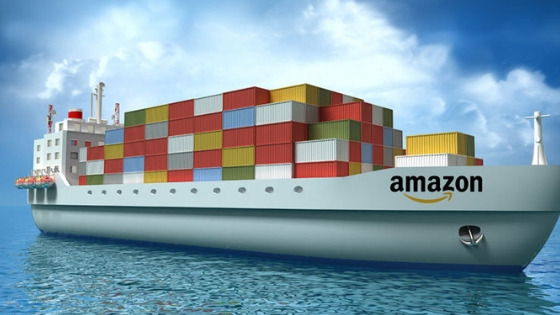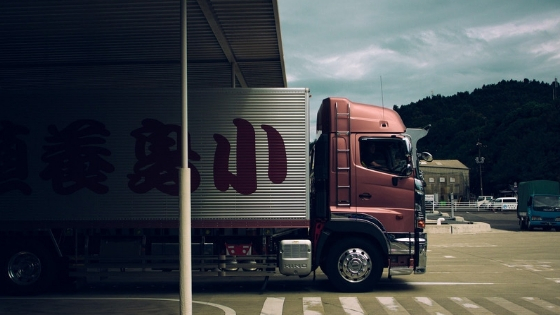Fulfillment by Amazon is a great way to give your customers the benefits of two-day shipping. It also takes away some of the stress and overhead that comes with managing your own logistics for deliveries. However, these bonuses rely largely on you having a good Amazon FBA freight forwarder. Without one, then you run the risk of making your situation worse than if you’d just handled deliveries yourself.
Finding a good freight forwarder is crucial, but it’s also something not everyone knows how to do. If you’re lost trying to do this, read on! We have the things you need to know to find an FBA partner for your venture.
Recommended: Is Your Mail Late because of USPS?

Contents
Air or Sea?
Freight companies will offer you one of two options: by air or by sea. By air requires less paperwork and is faster, but the trade-off is that it’s also much more expensive. Sea deliveries are more cost-effective, but the paperwork is more complicated and takes up more time. This means price, delivery periods, and amount of paperwork all have to be considered before you sign on the dotted line.
How Much Do They Cost?
Check for hidden fees and charges. Some companies will offer discounts, freebies, and incentives, but use these to obfuscate bloated price structures once the shiny limited time bonuses wear off. Always ask about the regular structure, rather than what’s currently on promotion. You have to work with that company for a long time to come, so it’s best to know what you’ve gotten yourself into for the long-term.
Related to this are hidden costs. Taxes, customs charges, and weight levies are the usual suspects, the ones that you don’t find out about until after you’ve signed up. Make sure you read all the fine print and find out about any of these things ahead of time, as they can easily double the cost of a single delivery.
Where Do They Deliver?
If your freight partner can’t deliver to where your market is, you need a new partner. This is the most basic requirement a freight forwarder needs to fulfill. Check the company’s website to see where they go, because even if they say “International,” that doesn’t mean they go everywhere.
Do They Do Ground Delivery?
Check if they do ground deliveries or if it’s just port to port. If the latter, you’re incurring additional charges because you need to make land arrangements. You want a company that provides a full delivery service; This might cost a bit extra, but it’s less of a headache and not as big as having separate land delivery deals.
Are They Insured?
If your goods are the sort where delivery is time-sensitive or at risk of damage, ask about insurance to cover damage and loss. Products like solar panels, glassware, antiques, and items of unusual shape all run the risk of being damaged in transit. For these, you want to know the carrier has insurance more comprehensive than the standard package.
Are They In Good Standing in the Industry?
Check the company website for any associations or organizations they have membership in. Then, check the organization’s website to see if they’re a member in good standing, or if there are any issues.
Being a member of one of these groups means that the freight company has gone through quality checks and evaluations. This can include everything from reliability to financial strength, along with integrity and the ability to deliver items in pristine condition. It shows care and professionalism in their work, letting you rest easy knowing that they’ve met these standards.
Can You Get in Touch With Them?
Communication is key to any relationship, including a business one. You want to know that if there is ever an issue, you can call them to clarify. You want to have multiple lines of communication open, and that these direct you to an actual human being and not a machine. Make sure they offer you a personalized e-mail and contact person, instead of just an online contact form.
Can You Track Your Packages?
Tracking is important. It’s important for your customer, who will want to know where their order is and how long before they get it. It’s also important for you because you want to know the order is being fulfilled instead of sitting in some warehouse.
If the freight company you partner with doesn’t offer tracking options, it’s best to work with someone else. You want a system that lets you track the delivery in real time, even outside office hours. The best companies will give you notifications when the status changes, as well as the option to track the package yourself as it’s being moved without having to call on the freight forwarder.
Recommended: Amazon Customer Help Line Phone Number
Do They Have a Fleet?

Ask if the freight forwarder uses their own fleet. While it’s not a warning sign if they use established carriers, know that it does open you up to a host of potential issues. Staff strikes, bankruptcy, and other problems can arise if they’re using established industrial and commercial lines. It’s usually not a big risk, but it might be one you’d prefer to avoid.
Who Else Do They Work With?
What are the freight company’s clients like? Are any of them experienced in your field? What about with FBA? When possible, you want to have a partner that not only works with products or industries like your own but also has experience with FBA. By doing this, you take comfort in knowing that there’s no learning curve involved and they know the ins and outs already. It also takes away the hassle of doing labeling yourself, which is time-consuming.
Can They Grow With You?
What’s their access to shipping lanes like? You want a partner that has access to a lot of these because that means they can scale up. As your business grows, the shipping partner can grow with you. You won’t be constrained by the limits of your forwarding company. It might not seem like a big deal at the start, but it becomes one if your venture grows.
Conclusion
There are a lot of things to consider when you’re looking for a freight forwarder. It may seem overwhelming, but these considerations are all useful in finding a good partner for your peace of mind and for the growth of your enterprise.
Related Post:
